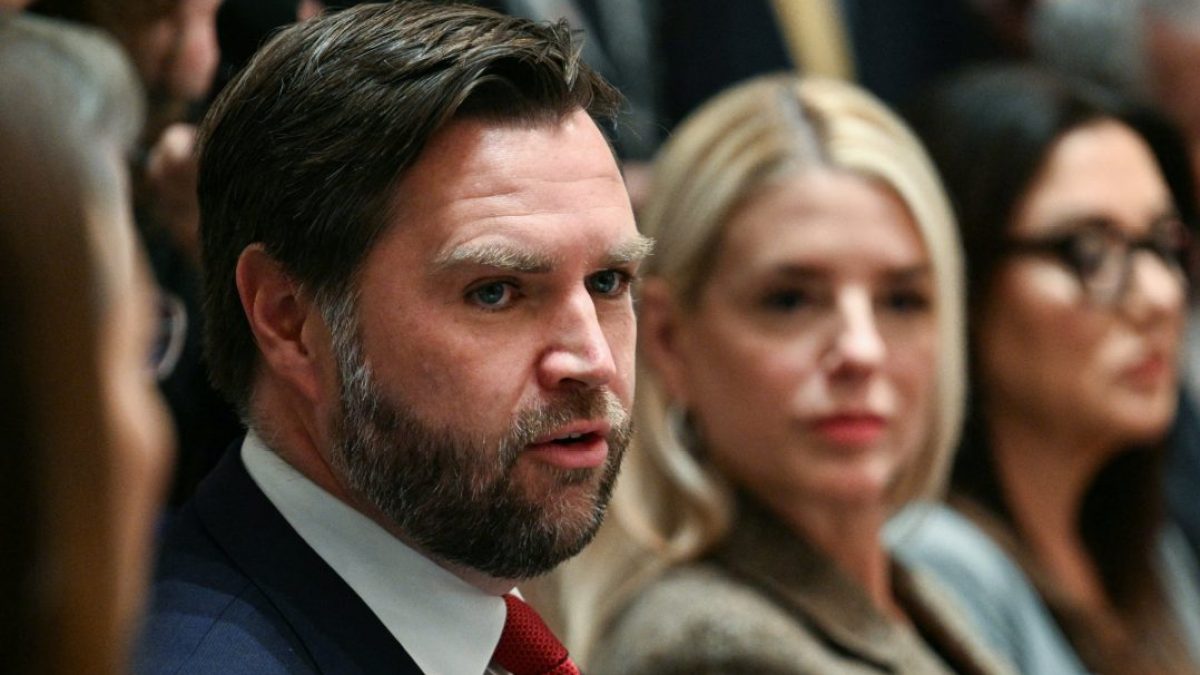Trump has a polished, Ivy League-educated lawyer as Vice President who argues that he can defy the highest court in the land
The US Vice President, JD Vance, is biding his time at the White House. Still only 41, he can afford to wait for the ultimate prize. But he can reflect with satisfaction on giving his power-hungry boss the intellectual confidence and justification to implement authoritarianism in the US.
A colleague of mine was stopped on the streets of New York and asked to show her papers – her ID – by an immigration official the other day. She was born in the US but comes from a minority community. She had popped out for coffee without her driving licence but talked her way out of a sticky situation. Others have not been so lucky.
Perhaps we shouldn’t be surprised at this new variant of racial profiling and “stop and search”. Years ago Donald Trump, then a mere citizen, demanded that president Barack Obama show his papers when he fanned the false “birther” conspiracy that Obama was born outside the US.
So what has Vance got to do with the war on the “enemy within” – the mobilisation of US troops in cities, the firings of government workers, the harassment of minorities and mass deportation of immigrants?
During Trump’s first term in office, the acronym Taco (Trump always chickens out) hadn’t been invented yet, but it applied more then than now.
Then, Trump had backed out of sending US troops to cities to put down Black Lives Matter protests. He had refrained from firing the military top brass or Justice officials who crossed him, despite itching to do so. He couldn’t dissuade his vice president, Mike Pence, from certifying the 2020 election result.
And on January 6, 2021, as rioters stormed Congress, Trump sat on his hands at the White House, a spectator at the insurrection he had unleashed.
That year JD Vance, who had previously called himself “a never-Trump guy”, flipped sides while preparing to run for the Senate. He began making friends with fringe national conservative (NatCon) figures who saw Trump 2.0 as a vehicle for their authoritarian ambitions.
The guiding idea took shape that a US president can do what the hell he wants and defy the others to oppose him. There was no need to ask permission or forgiveness later.
Vance expressed this novel view on a relatively obscure podcast, but it has now become standard Trump practise.
“When the courts stop you,” he said, “stand before the country like [19th century president] Andrew Jackson did and say, ‘The chief justice has made his ruling. Now let him enforce it’.”
This is a US version of the saying attributed to Stalin – “How many divisions has the Pope?” – underlining how without military force there is little power. When push comes to shove, nobody can stop Trump.
Vance went on to argue in another interview, “you need the bureaucracy to be responsive to the elected branches of government”, referring to the hiring and firing of staff. He said that if the Supreme Court tells the president, “‘You’re not allowed to do that’ – like, that is the constitutional crisis. It’s not whatever Trump or whoever else does in response.”
As it happens, the Supreme Court – stuffed with Trump appointees – has not been opposing the President’s will, mostly because it doesn’t want to. But in the face of Vance’s challenge, it is also afraid to force a constitutional showdown.
Cases are piling up in its in-tray. The most consequential decision the Supreme Court has to make is whether to uphold Trump’s executive order ending birthright citizenship for children of undocumented immigrants. A series of lower courts have ruled this a blatant violation of the US constitution.
Right now, judges are holding up the President’s deployment of troops to US cities. In Portland, Oregon, a Trump appointed-judge declared, “This is a nation of constitutional law, not martial law”, and said the administration’s claims of violence on the streets were “untethered to the facts”.
In Chicago, Illinois, where members of the Texas national guard have been dispatched, a Joe-Biden appointed judge ruled there was “no credible evidence” of the need for troops. She added, “I find the deployment of national guard is likely to lead to civil unrest”. These are only temporary setbacks, as far as the administration is concerned.
Trump has spent his life resisting and appealing lawsuits, but has rarely dared to defy the law. But in Vance, he has a polished, Ivy League-educated lawyer as Vice President who argues that he can bully and defy the highest court in the land.
America is on the road to authoritarianism. For some, caught in the crosshairs, it has already arrived. Vance bears much of the responsibility for how far the country proceeds down this path. One day, he will be judged on this.
Sarah Baxter is director of the Marie Colvin Centre for International Reporting
